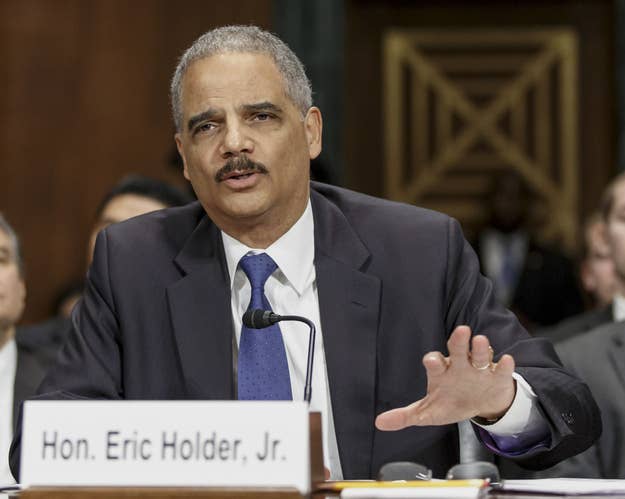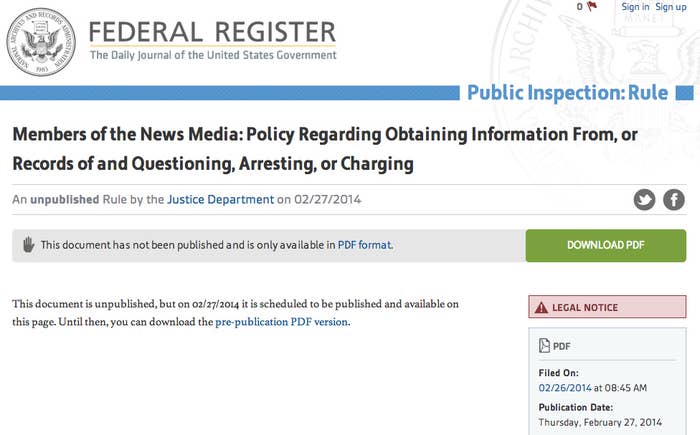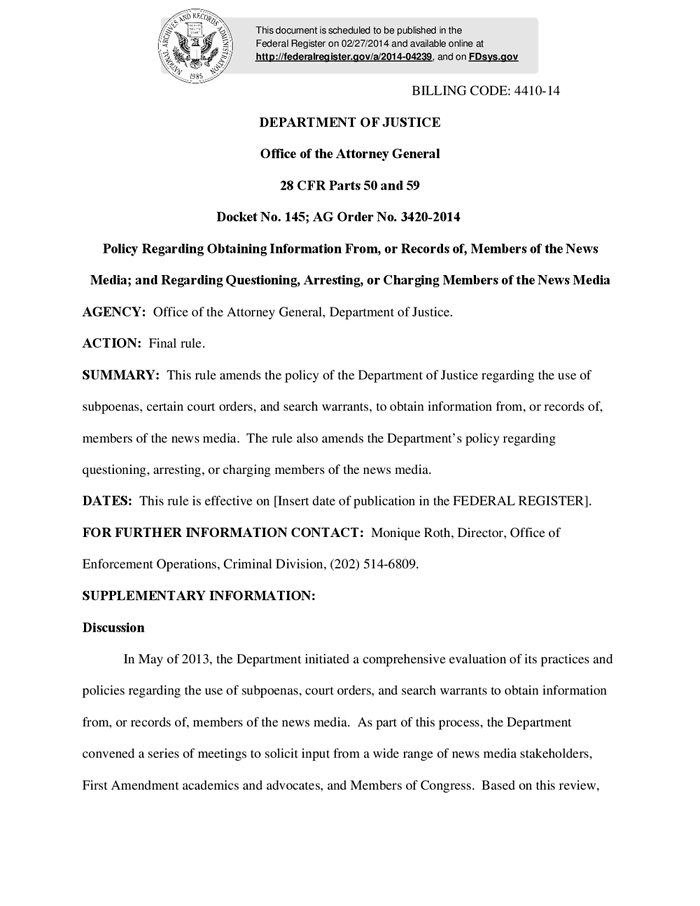
WASHINGTON — The Justice Department has submitted its final rule change governing the department's investigation of media organizations following last summer's uproar over surveillance of journalists, and it is set to be published Thursday.
"The revisions ... ensure more robust oversight by senior Department officials," the final rule states. "The changes to the policy also strengthen the presumption that Department attorneys will negotiate with, and provide advance notice to, affected members of the news media when investigators seek to obtain from third parties communications records or business records related to ordinary newsgathering activities."
The rule finalized this past week, as reported by The New York Times and follows last summer's announcement of changes — which include notifying the media of any planned subpoena in most circumstances and requiring the attorney general himself or herself to sign off on the issuance of such subpoenas — in the wake of opposition to the Justice Department's collection of Associated Press phone records and investigation into Fox News reporter James Rosen.
Gabe Rottman, legislative counsel at the ACLU, reviewed the final rule, which was posted to the Federal Register website at this link early Wednesday morning, although it does not appear on the front page of the recent rules. The document itself notes that it "is scheduled to be published in the Federal Register on 02/27/2014," which is Thursday.
"We had strongly urged the DOJ to reverse the presumption against informing the media" of a subpoena, "and they have done that," Rottman told BuzzFeed after reviewing the final rule. "The rest of it — as with the current regulations — can be subject to misuse or overreaching ... but the DOJ definitely deserves some credit for moving quickly and taking some steps to protect press freedoms."

Rottman pointed to three areas as potential changes from the Justice Department's initial announcement of the policy changes last summer.
First, in the requirement that the attorney general sign off on a subpoena for a member of the media, the rule exempts information about comment sections on media sites. The provision appears on page 10 of the final rule:
(B) To issue subpoenas to members of the news media for information related to public comments, messages, or postings by readers, viewers, customers, or subscribers, over which the member of the news media does not exercise editorial control prior to publication.
Second, in a provision that Rottman said "could reduce fishing expeditions," the attorney general is supposed to consider, before signing off on a subpoena, whether the subpoena relates only to published information. The provision appears on page 12 of the final rule:
(iv) The proposed subpoena generally should be limited to the verification of published information and to such surrounding circumstances as relate to the accuracy of the published information.
A final provision, which Rottman noted could have been implied in the initial announcement, is an "exigent circumstances" exemption that allows a deputy attorney general to authorize a subpoena to a member of the media under limited circumstances. The provision appears on pages 18 and 19:
(g) Exigent circumstances. (1) A Deputy Assistant Attorney General for the Criminal Division may authorize the use of a subpoena or court order, as described in paragraph (c) of this section, or the questioning, arrest, or charging of a member of the news media, as described in paragraph (f) of this section, if he or she determines that the exigent use of such law enforcement tool or technique is necessary to prevent or mitigate an act of terrorism; other acts that are reasonably likely to cause significant and articulable harm to national security; death; kidnapping; substantial bodily harm; conduct that constitutes a specified offense against a minor (for example, as those terms are defined in section 111 of the Adam Walsh Child Protection and Safety Act of 2006, 42 U.S.C. 16911), or an attempt or conspiracy to commit such a criminal offense; or incapacitation or destruction of critical infrastructure (for example, as defined in section 1016(e) of the USA PATRIOT Act, 42 U.S.C. 5195c(e)).
(2) A Deputy Assistant Attorney General for the Criminal Division may authorize an application for a warrant, as described in paragraph (d) of this section, if there is reason to believe that the immediate seizure of the materials at issue is necessary to prevent the death of, or serious bodily injury to, a human being, as provided in 42 U.S.C. 2000aa(a)(2) and (b)(2).

